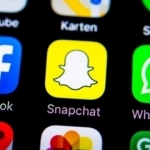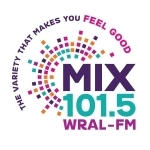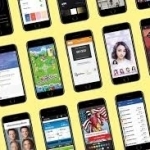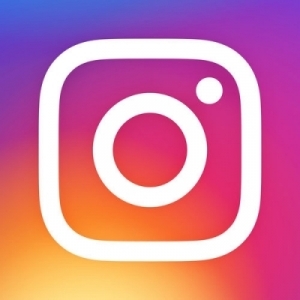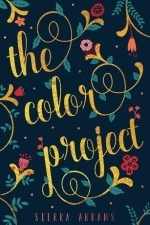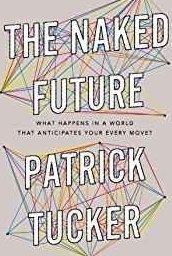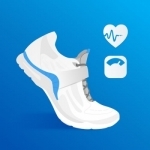
Pacer: Pedometer & Walking App
Health & Fitness and Medical
App
Track your steps 24/7 using just your phone! Join a community of people just like you and get...

Google Duo - Video Calling
Social Networking
App
Google Duo is the highest quality one-to-one video calling app*. It’s simple, reliable and works...

Just Press Record
Utilities and Productivity
App
Just Press Record is the ultimate mobile audio recorder bringing one tap recording, transcription...

The Grammarly Keyboard
Productivity and Utilities
App
Grammarly’s AI-powered keyboard ensures your urgent emails, important LinkedIn messages, and...
and 15 other items
Entertainment Editor (1988 KP) shared own list
Dec 6, 2017

Santa Radio
Music
App Watch
Welcome to the No.1 FREE App for Christmas Radio with Personality. Santa Radio... In the Air ~ On...
music

Christmas RADIO
Music
App
Holiday music lovers across the globe are getting an early Christmas gift because of the massively...
music
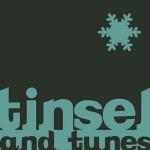
Tinsel & Tunes
Entertainment
App
The world's favorite Christmas radio station airing annually from November 1st through January...
entertainment
Entertainment Editor (1988 KP) shared own list
Nov 2, 2017

Super Mario Run
Games
App Watch
A new kind of Mario game that you can play with one hand. Super Mario Run has received some big...

Microsoft To-Do
Productivity
App
Microsoft To-Do is a simple and intelligent to-do list that makes it easy to plan your day. Whether...
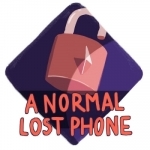
A Normal Lost Phone
Games
App
A Normal Lost Phone is a game about exploring the intimacy of an unknown person whose phone was...

The Great Courses Plus
Education
App Watch
Over 8,000 college level videos and lectures at your fingertips! Learn from the top college...
education
and 20 other items
Sophia (Bookwyrming Thoughts) (530 KP) rated The Color Project in Books
Jan 23, 2020
<b>Five Reasons Why You Should Drop Everything on July 18 and Read <i>The Color Project</i></b>
Lately I've been in a reviewing funk/slump, so I am back again with another list of reasons why you should totally drop everything, and I mean <i>everything</i> (except for homework and other real-life priorities despite the fact you'd rather read all day) on July 18 (WHEN THE BOOK COMES OUT!) and read Sierra Abrams's debut novel.
<b>The Use of Apps</b> - I think this is a <i>really</i> minor detail, but I almost never see books that actually uses smartphone apps, and Abrams incorporates the use of at least one app I think almost everyone uses on a daily basis if not more.
<b>Gorgeous Writing</b> - I currently don't have the copy with me by side as I'm writing this review, but Abrams has some <i>amazing</i> descriptors in her novel (most of which having to do with stars and constellations, which I adore). Have I mentioned the chapters are based on songs?!
<b>Family and Friendship</b> - Aside from the obvious romance, family and friendship plays an important role in <i>The Color Project</i>, and I <i>loved</i> how Abrams incorporated those two elements together seamlessly with romance.
<b>So Much Emotional Feels</b> - If anyone knows me well enough, I am <i>not</i> an emotional person when it comes to the books I read and the movies/TV shows I see. <i>The Color Project</i> brings out my emotional side, and I had so many tears as I got closer to the end of the novel. (Granted, I might have been watching far too many <i>Boys Over Flowers</i> episodes and reading about three other contemporary novels at the same time, but <i>I never cryyy</i>.)
<b>Cute Characters</b> - I am <i>alll</i> for adorable characters. <i>Imperfect Chemistry</i> is valid proof of that, along with many others I've been reading lately (from <i>I Believe in a Thing Called Love</i> to <i>When Dimple Met Rishi</i>). Bee and Levi are so adorable, I just want to pick them up from <i>The Color Project</i> and adopt them.
It was an absolute delight to read Bee's and Levi's story in <i>The Color Project,</i> and is perfect for those looking for a contemporary novel that has gorgeous writing and bring so much emotion.
<a href="https://bookwyrmingthoughts.com/blog-tour-color-project-by-sierra-abrams/"; target="_blank">This review was originally posted on Bookwyrming Thoughts</a>
BookblogbyCari (345 KP) rated The Naked Future in Books
Aug 5, 2018
This is a book about how the digital footprint we leave behind us can be used to make predictions about our future in all aspects of our lives. But are we seeing the coming to being of a dystopian science fiction, or are we tapping into a new superpower?
Every app on every device we use leaves a digital trail about us, and this has implications in the fields of medicine and the spread of infections, education and learning, and crime prediction, through to movie preference and dating.
The book predominantly examines the value to society in general but also looks at the benefits to the individual. Of course, these benefits come at a cost to our privacy, which the book also briefly addresses. Each chapter is centered on its own topic. I will mention each but in the interests of brevity won’t go into detail on each topic.
Chapter 1 begins by describing how certain apps can be extremely useful warning providers, but by the end of the chapter, we are looking at how your smartphone apps can be used to locate you, even when your GPS is turned off and you’re not geo-tagging posts or tweets. With modern statistical models and enough data points, it’s possible to predict where you will be down to the hour and within a square block one and a half years from now. Turning off your GPS doesn't actually make you less predictable, it just makes your predictability level harder to detect - your future remains naked.
Similarly, in Chapter 2 which examines deliberate self-tracking, Tucker notes that Fitbit users who are confused or ignorant of the device’s privacy settings are inadvertently sharing the data details of their sexual activity.
This seems like frightening stuff, but then the conversation turns to more benevolent uses of such technology. Chapter 3, by way of an imagined story, examines how such technology can be used to predict the spread of dangerous infections, including the identification of new strains of virus as new mutations occur.
Chapter 4 looks at the use of such technology in weather forecasting, and how it’s been used to make way for insurance against the effects of the weather for affected businesses. Chapter 5 explores how movie/book choice and ratings can be used to predict what makes a good movie/book.
We go back to the frightening stuff in Chapter 6. Here Tucker talks about how the smartphone has become the ultimate shopping accessory. Knowing what habitual time an individual wants a coffee, cig, or beer, is ideal for online advertisers, who will be able to send you a voucher/coupon or a mere suggestion right there on the spot. There could also be surveillance systems examining what you pick up and consider buying but don't put into basket /trolley. Tucker goes on to describe how data brokers such as Acxiom have begun selling on to advertisers access to not only your data to also to your future decisions.
Chapter 7 looks at education and learning, and makes the following good points: “What telemetric education offers is the chance for all students to raise their hands and be heard, without fear of confirming some unflattering, broadly held perception about their social group.” And “Imagine for a moment the power of knowing beforehand how well you would perform on a test but how disempowered you would feel if that same future was naked to your competition, or to your future potential employers.”
I like the title of chapter 8 “When Your Phone Says You’re In Love”. Here Tucker tells how online dating sites have become a living social science lab. Again here your personal details can be sold on. In the future, you could be rating your actual get-togethers on the app. Already invented is a “sociometer” which detects unconscious biological signals which show what role you’re taking in a conversation, and can then produce predictions on how the rest of the conversation will go.
Chapters 9 and 10 look at predictions in the where, when and who of acts of crime. He discusses where it has worked so far. But on this Tucker says “Predictive policing in the wrong hands looks less like a boon to public safety and more like a totalitarian hammer.”
The book concludes with Chapter 11, titled “The World That Anticipates Your Every Move”. Here one interviewee said as “Privacy is a blip on the radar of history.” Indeed the chapter ends with an obituary to privacy, where Tucker says “we will feel increasingly powerless against the tide of transparency rendering this planet in a new form as surely as the movement of glaciers carved our canyons and valleys.”
I’ve highlighted here the more worrisome aspects of the topics, but it’s important to note that Tucker does aim to offer a prescription for the situation, though it’s spread out in occasional paragraphs here and there rather than as a useful reference at the end. That said I found the actionable advice was rather brief and unoriginal.
Tucker presents a fair and balanced view of this important and highly relevant topic of our times, and the book is clearly well-researched. Some chapters show a little humor which was fun, but although the book is aimed at the layman, I often felt like I was reading a science textbook. The book is a real eye-opener, especially if it’s something you hadn’t given much thought to. The overall message of the book is clear: our data is already out there, but it’s ours first and foremost, and we can be savvy and use it to our advantage.
